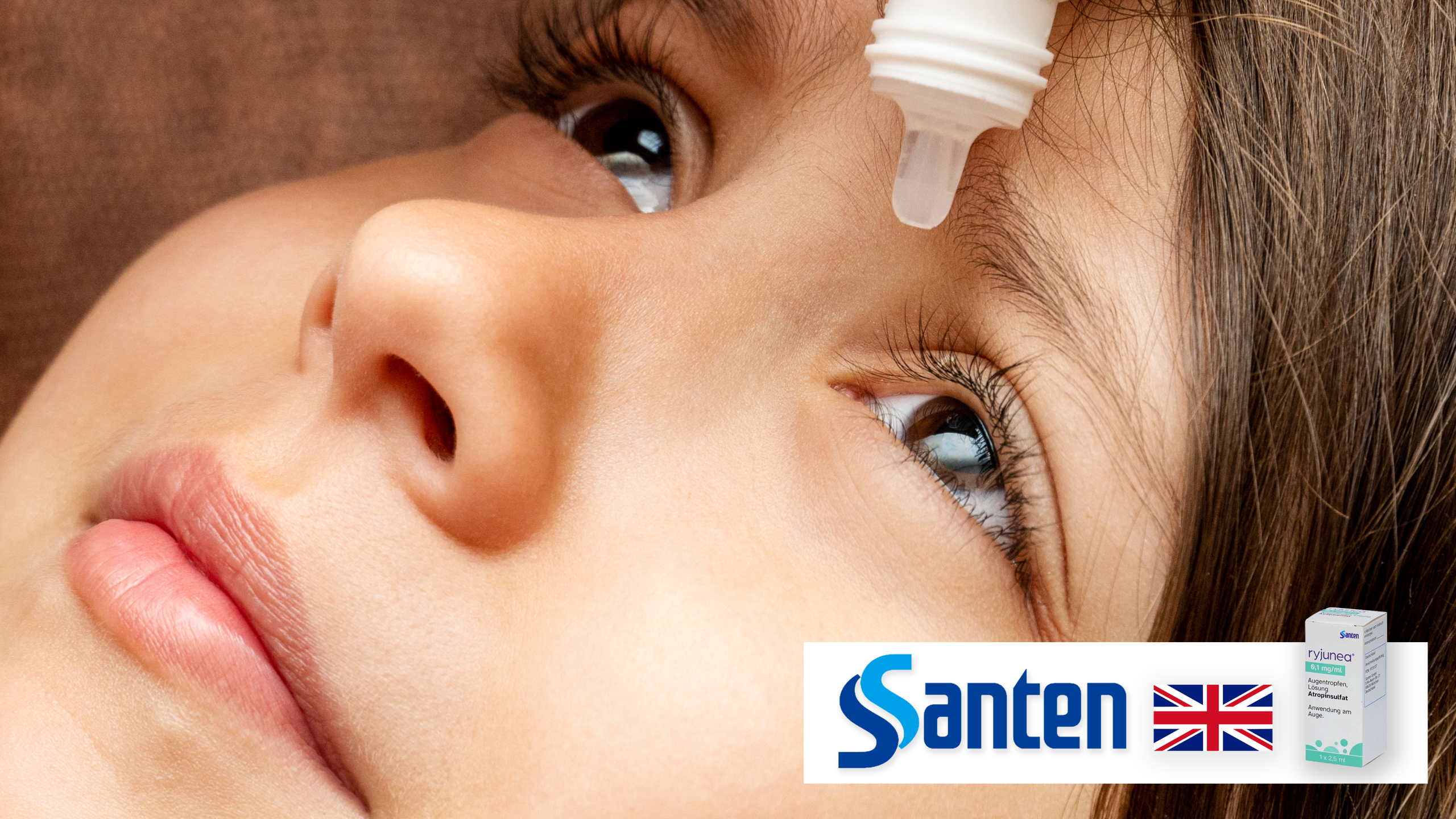A small dose, a big step. The UK gives Ryjunea the green light.
The UK Medicines and Healthcare products Regulatory Agency (MHRA) has granted approval to Ryjunea, Santen’s (Osaka, Japan) low dose atropine (0.1 mg/ml) ophthalmic solution, indicated to slow the progression of myopia in children aged three to 14 years. The approval marks a milestone as the first low-dose atropine formulation authorized in the United Kingdom for this purpose.
The indication covers children whose myopia progresses by 0.5 D or more per year and ranges in severity from -0.5 D to -6.0 D. The MHRA’s decision follows the European Commission’s earlier authorization, with Germany serving as the first launch market earlier this year.
READ MORE: WSPOS Myopia Consensus Statement 2025: What Parents and Practitioners Need to Know
What research says about the low-dose atropine
Low-dose atropine eye drops have been the subject of extensive study in recent years. A 2023 Cochrane systematic review and network meta-analysis found that low-dose atropine (<0.05%) ranks among the most effective pharmacologic options for slowing axial elongation in children, while carrying relatively few side effects compared to higher concentrations.1
With Ryjunea (0.1 mg/ml) now licensed, clinicians in the UK gain a clearly defined regulatory framework for prescribing atropine eye drops for myopia control under approved indications and dosage.
READ MORE: Game-Changers in Myopia Management
A closer look at the growing myopia in children
Rates of childhood myopia in the UK have more than doubled over the past 50 years, according to data from a PLoS One study on refractive changes among White UK children.2 Researchers attribute this surge to less time outdoors and more time spent on digital devices—a trend echoed in the 2024 UK Parliament report on screen time and wellbeing.3
READ MORE: The Myopia Crystal Ball
Globally, the picture is just as concerning. A comprehensive analysis published in the British Journal of Ophthalmology projects that by 2050, nearly one in three children and adolescents will be affected by myopia.4
The takeaway
The UK authorization of Ryjunea builds on Santen’s European expansion following the European Commission’s approval in April 2025. With over 135 years of ophthalmic innovation, Santen continues to strengthen its footprint across Europe, with plans for broader availability in the coming months.
While several low-dose atropine formulations have long been used across Asia, Ryjunea stands out as the first officially licensed product in the UK to slow myopia progression in children. For clinicians, it’s a timely new tool in the fight against what’s fast becoming a generation of short-sighted kids—and not just in the metaphorical sense.
Editor’s Note: This content is intended exclusively for healthcare professionals. It is not intended for the general public. Products or therapies discussed may not be registered or approved in all jurisdictions, including Singapore.
References
- Lawrenson JG, Shah R, Huntjens B, et al. Interventions for myopia control in children: A living systematic review and network meta-analysis. Cochrane Database Syst Rev. 2023;2(2):CD014758.
- McCullough SJ, O’Donoghue L, Saunders KJ. Six year refractive change among white children and young adults: Evidence for significant increase in myopia among white UK children. PLoS ONE. 2016;11(1):e0146332.
- Education Committee. Screen time: impacts on education and wellbeing. UK Parliament. May 25, 2024. Available at: https://publications.parliament.uk/pa/cm5804/cmselect/cmeduc/118/summary.html?utm_source=chatgpt.com. Accessed on November 6, 2025.
- Liang J, Pu Y, Chen J, et al. Global prevalence, trend and projection of myopia in children and adolescents from 1990 to 2050: A comprehensive systematic review and meta-analysis. BMJ Ophthalmol. 2025;109:362-371.
